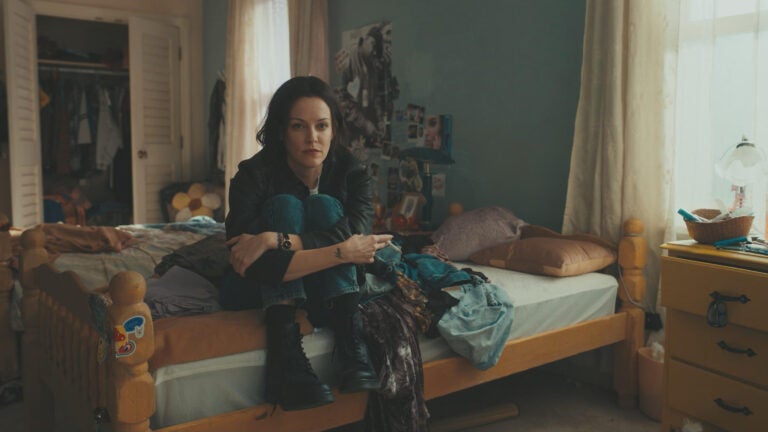📚 Stay up-to-date on the Book Club
Catch up on the latest Boston.com Book Club pick and join the virtual author discussions.
A Japanese war bride, a feisty journalist and an up-and-coming opera singer are three of the compelling characters in five new historical novels that transport readers to other times and places.
The 1906 San Francisco earthquake is the sensational backdrop in this seamless collaboration of two terrific novelists. The story centers on forward-thinking women and a priceless Chinese relic, the Phoenix Crown. Looted from the Summer Palace in Beijing, the crown’s magnificence pulls the novel’s characters into its orbit. Gemma Garland is an aspiring opera soprano, and Suling Feng is a talented embroideress trying to avoid an arranged marriage. The authors write vividly of the struggles Gemma, Suling and other women face as they fight for rights and opportunities springing up in the new century. The crown is part of what draws them into the clutches of an enigmatic tycoon, and this history-based novel tips into thriller territory when his true nature is revealed. The novel builds toward the quake, then paints cinematic pictures of its destructive powers. (William Morrow, Feb. 13)
This meticulously researched novel is inspired by the life of Churchill’s grandmother, who, like thousands of Japanese women, married an American serviceman and emigrated to the United States after World War II. With empathy and heart, Churchill portrays the challenges these women faced. Likable and quirky Mineko Cope is a Japanese war bride who struggles to fit into the small Texas community where she’s the only person of Asian heritage. Equally compelling is Mineko’s relationship with her granddaughter Lia, who also feels like an outsider. Churchill ably captures the stings of racism that biracial Lia endures and portrays with sympathy the people of Japan, whose lives, like those of people around the world, were decimated by the war. (Harper, Feb. 20)
Miller’s stirring novel begins as the Civil War ends. Its intrepid heroine, Louella Bobo, is a young Black woman who dreams of a place called the Kingdom of Happy Land where Black people can live away from prejudice and hate. Miller’s novel is based on a little-known piece of history about formerly enslaved people who traveled from Mississippi to North Carolina, where they established a socialist-like society. Residents of Happy Land are self-supporting and thriving, but it doesn’t stop the Ku Klux Klan and the marauding Night Riders from threatening them. The dialogue sometimes feels overly formal, but it doesn’t distract from this quintessential story of brave people fighting for what they know they deserve. (Thomas Nelson, Jan. 30)
It’s the Roaring Twenties in Chicago and Nelly Sawyer, daughter of the richest Black man in America, is hurtling toward a future of her choosing. Nelly’s parents want her to be a high-society wife, but Nelly wants to be a reporter for the Chicago Defender, an influential Black newspaper. Her articles are lauded but only because she’s forced to write under a man’s name. She cuts a deal with the paper’s founder: She’ll ferret out the name of the anonymous gangster – known as the Mayor of Maxwell Street – who controls bootlegging and gambling in the city. In return she’ll have her name on the story. The narrative in this superlative debut is propulsive, and the dialogue burns hot as the fiery and fearless Nelly endures racism and misogyny as she tracks down the Mayor. (Hyperion Avenue, Jan. 30)
An estimated 9,000 children died in Ireland’s horrific “mother and baby homes,” where unwed pregnant women endured unimaginable abuse at the hands of the people meant to protect them. Babies born in the homes were often stolen from their mothers, and the children who perished were buried in unmarked graves. This tragedy is at the heart of Maure’s powerful debut novel. It begins with the Nazi bombing of Belfast that kills the parents of 10-year-old twins Aelish and Isabel McGuire. They are sent to an orphanage, where they are abused by the nuns who live and work there. Down the road from the orphanage is a “mother and baby home,” and when Isabel witnesses a terrible event, the truth about what goes on there gradually comes to light. Despite its bleak storyline, this is an achingly beautiful novel about redemption and the power of sisterhood. (Harper, Feb. 27)
Carol Memmott is a writer in Austin.
Catch up on the latest Boston.com Book Club pick and join the virtual author discussions.

Stay up to date with everything Boston. Receive the latest news and breaking updates, straight from our newsroom to your inbox.
Conversation
This discussion has ended. Please join elsewhere on Boston.com